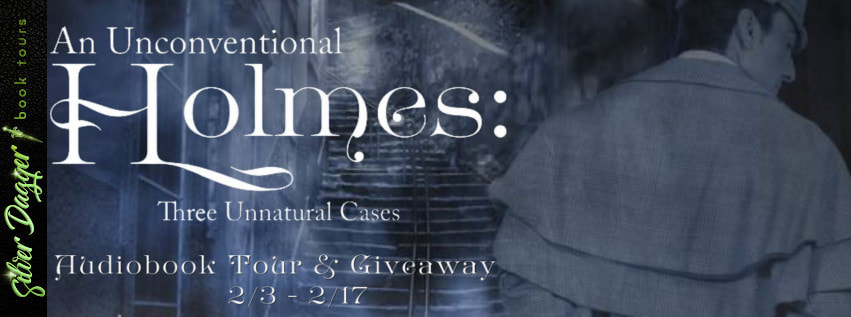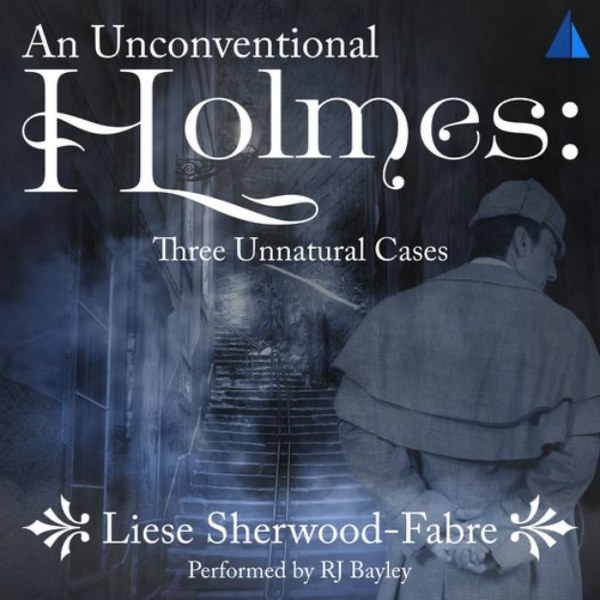THE ADVENTURE OF THE MISSING IRREGULARS
(Based on the Grimm Brothers’ Tale of
the Children of Hameln)
The knock came as Holmes and I
sat down for breakfast. Sherlock paused, his fork and knife suspended above his
plate, ready to attack the kipper lying there. “Come in, Wiggins.”
A lad of about sixteen stepped
into the room and peered at my flatmate. “How’d ya’ know it was me?”
“Quite obvious,
really.” Holmes chewed a bite of fish. “No one had knocked on the front door,
and your steps were too light for a man and too quick for a lady. Therefore,
Mrs. Hudson had let in a boy through the back entry. I suppose it could’ve been
another of the Irregulars, but given you are their leader, logically, it would
be you.”
Wiggins’ mouth formed an o. “Laws. That’s a ‘nificent piece
of thinkin’.”
“What I am
unable to ‘think’ out, however, is the purpose of your visit.”
The young man sobered
immediately at this pronouncement, his lower lip trembling. “It’s me mates.
They’re gone.”
Sherlock’s next forkful froze
halfway to his mouth. A piece of kipper swung from the tines. “Gone? How?”
“I dunno,
‘xactly. The six of us went to sleep, and when I woke up, they was gone.”
“This morning?”
He shook his head. “Yesterday
mornin’. I spent all day searchin’ for them. Walked all over town, whistlin’
our call to come together. Nuthin’.” His eyes glistened. “Somethin’ bad’s
happened to ‘em. It’s like the earth swallowed ‘em.”
A stone formed in the pit of my
stomach at the news of the Irregulars’ disappearance. London in 1895 had a
variety of ways of “swallowing” people, and it was quite possible that was what
happened to the boys. Even Holmes might have trouble locating them. Sherlock,
however, expressed no such doubts.
“Unless the
laws of physics somehow shifted yesterday, they are somewhere,” Holmes said. He
dropped his fork and kipper onto his plate and raised his gaze to the boy. “As
you can see, gravity has not been altered. Since physical laws are operating as
they should, the same most definitely applies to the Irregulars.”
He turned to me as he pushed
himself away from the table. “Watson, shall we begin the investigation?”
THE ADVENTURE OF THE COUNTERFEIT
SQUIRE
(Based on the Grimm Brothers’ Tale
of Rumpelstiltskin)
A scream alerted me to the
intruder’s presence. I caught up to and passed the swarm of bees heading in the
cry’s direction, only to stop when I reached the woman to wave her
backwards.
Between pants from the
exertion, I shouted at her. “Get behind that rock wall.”
She turned and rushed around to
the road side of vine-covered enclosure. The honeysuckle and peppermint
covering its stones deterred the insects from crossing over into the
lane.
No longer
sensing her presence, they returned to the hives I’d been tending and freed me
to meet my unexpected visitor at my cottage’s border.
I quickly understood the bees’
interest. Her jasmine scent penetrated my hat’s protective veil, overpowering
that of the smoke drifting from the cannister in my left hand. She wore one of
those straight, loose garments that had come into fashion with the end of the
Great War. Forest green. And a large-brimmed straw hat with a velvet ribbon.
She raised her head slightly to peer at me from under its shadow.
“Sorry about
that,” I said, lifting my veil to get a better look at her. “I’m—”
“Mr. Sherlock
Holmes,” she said, holding out her hand. “Mrs. Heather Miller. I need you to
find my husband.”
I studied her
for a moment. Her face presented a tension, a marked anxiety telling me this
was no ordinary missing person case. All that aside...
“I’m retired,”
I said “There were more than one hundred and sixty thousand soldiers missing at
the end of the war. The army would be a better place to start.”
“How did you
know my husband was in the war?”
“The poppy pin
you’re wearing.”
Her lips,
painted the same color as the small brooch fixed above her right breast, formed
an o. “What if I were to tell
you the army won’t help me because they believe he has come home?”
As if having
developed a will of their own, my eyebrows rose, then dropped into a v. My interest piqued, I decided no
harm existed in hearing her out.
“Why don’t you
explain your problem over a cup of
tea?”
I gestured to my home, and a smile flitted across those poppy lips. We both knew she’d
played out her bait and lured me in.
THE ADVENTURE OF THE TAINTED BLOOD
The epidemic arrived from the
Continent in 1889, and a year later, our world had shifted on its axis,
plunging survivors into a nocturnal, feral existence. Had it not been for a
peculiar turn of events one spring evening in 1891, that world might have
consumed both Holmes and myself.
We were both involved in the change
from the beginning, although we didn’t recognize it at first. As a medical
doctor, I was called in to treat a number of extreme anemia cases, which all
led to general organ failure and death. While I responded to medical
emergencies, Holmes assisted in the investigation of a series of quite gruesome
murders involving ripped throats, but a complete lack of blood in the victim or
the surrounding scene.
And no one was immune from
infection or attack.
I sent Mary to the country
early on to avoid the illness’s rapid spread. Two weeks after seeing her off, I
received a chatty letter from her, giving no hint of illness, and a telegram an
hour later informing me of her death from rapid-onset anemia. At the time, I
considered my inability to protect her my greatest failure.
Of course, events soon
overwhelmed the medical and law enforcement communities, and many fell victim
to the infection themselves. When Inspector Lestrade called on us a few weeks
after Mary’s demise and provided a full explanation of the disease, we were
forced to make a decision—survival or death. A year later, I wondered if we had
made the appropriate choice.
Vampyre.
The name dredged up images of
an all-consuming and soul-less thirst, but the true transformation was to
society itself. At the beginning of the epidemic, an ample supply of humans
existed. Over time, however, the scales tipped and alternative sources
developed as the human population faded from this earth. Animals were no longer
kept for their meat—only for their blood.
My friend foresaw the
inevitable near-extinction of all mammals and had cleverly captured his own
stock of rats to maintain his and my existence. But survival is not always
living.
The night in question began as
it had since our transformation: my friend checking on our stock, ensuring
proper food and water, and then selecting some for their contribution to our
nightly ration of blood. That night, I stared into the cup’s thick, scarlet
content and exhaled through tight lips. After feasting on a few of my patients
and fellow physicians, I had to say rat blood was a poor substitute. One could
compare it to a glass of water instead of an aged Madeira wine. Both quenched
one’s thirst, but true pleasure was in the second.
All the same, after raising it
in a short salute and draining the glass, I forced down the urge to lick the
thin layer of corpuscles still clinging to its slick inside. While the amount
was enough to maintain, the lust for more never left.
Holmes pulled my attention from
the little pool at the bottom of my glass when he placed his own upon the
mantel of the long-cold fireplace and sighed.
“I’m not
certain I’ll be much longer in this world.”
“I’ll admit
this is hardly a feast,” I said, “but quite enough to sustain us.”
“I’m not
referring to our meal—or whatever one calls what we just consumed. I’m
discussing remaining on this planet.”
My Sherlock Holmes Collection
The one
way you can identify a true Sherlockian is if they have a collection. Different
Sherlockians are interested in different items. I know one who has collected
games based on the great detective (and yes, there are many), one who has
assembled the photos and autographs of almost all the actors who have portrayed
Sherlock over the years (going back to early theatrical productions), and
another who recently donated his copies of foreign editions of the cases to
Southern Methodist University (SMU) library. In fact, libraries across the
world can boast of being recipients of different private collections. One of
the most extensive is at the University of Minnesota.

Compared to those with
rooms dedicated to their passion, mine is quite meager and could be displayed
on just a few shelves. I have a plushy Pikachu doll with a deerstalker cap, a
phrenology model (almost always in the background in 221B scenes), and a
first-day issue of a series of Sherlock Holmes stamps from the UK. This doesn’t
even include a number of different books on Sherlock Holmes, Sir Arthur Conan
Doyle, and Victorian England I use for reference.

My
favorite, however, is a set of nesting dolls I purchased at a Sherlock Holmes
conference. It’s special because it represents the intersection of my
professional and writing lives. From 1990-1995 I worked for the US Agency for
International Development (USAID) in Moscow. It was a heady time—Russia was
moving toward a market economy and democracy. I was involved in assistance to
the education and health sectors as innovations were introduced in both.
Nesting dolls are an iconic part of Russian culture, and we purchased quite a
number while there. When you visit a market, you will find sets range from only
a few figures (three-five) to twenty or thirty and can be simple or quite
elaborately painted and decorated. My Sherlock set holds Sherlock, Watson,
Lestrade, Moriarty, and the famous hound of the Baskervilles.
People
collect for different reasons—from investment to a means of remembering to
simply the joy it brings. My collection seems to fall in the last one. You
can’t look at a deerstalker-sporting Pikachu and not smile.
What
about you? Has the collecting bug bit you? What have you assembled?











Hi Joy!
ReplyDeleteThanks for hosting me!
Liese